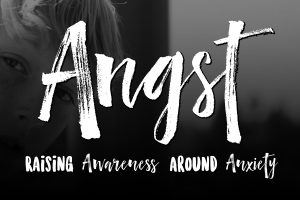If you are a parent, teacher, or dog trainer, all of these responsibilities are fulfilled best by using similar strategies.

Parents want their children to grow up safe, healthy, successful, and happy. Teachers want their students to be enthusiastic learners that also grow up to combine their academic skills with great character. Dog-trainers want the dogs they work with to have respectful manners while they feel the love of their owners.
The framework for all three jobs is pretty much the same.
Know what you want
Parents, what do you value the most, what are your non-negotiables, and what is the outcome you would like to see for your children.
Teachers, what do you want your students to learn academically? How do you expect them to behave in your classroom? What do you see as your responsibility to build character while they are learning the lessons in class?
Dog-trainers, you want to know what is allowed in the house and when you are out in the community. What is the personality of the dog and how can you balance their personality with what is acceptable for the owners and community.
Set your expectations

Parents want their children to know what the rules are in their family. They need to know if eating cookies before dinner is allowed or not allowed. What are the rules for electronics in the family, what are bedtimes and a whole host of other things depending on the age of the children?
Teachers want to know what their classroom rules are for the best learning environment for the subject they are teaching. Discussing them regularly and posting them in an area that can easily be seen for all students will be a good reminder of expectations
Dog-training is the same except they cannot understand the language you are speaking (though some dog owners believe they are able to understand). The dog must learn if you will allow jumping on you, getting on the sofa, begging at the table, etc.
Agree on consequences
Parents need to express what the consequences are for breaking the rules ahead of time and make them clear to everyone in the house. The expectations and consequences should apply to everyone in the home. Then parents will want to be consistent in applying the expectations and consequences.
Teachers will also want to be consistent with the application of consequences. Whatever our expectations are when applied fairly will be respected by the students. Knowing what to expect takes away the opportunity for manipulation or anxiety of the unknown.
Dog training is pretty basic. The act is committed and this is what happens. The dog learns to do things that result in what they are hoping for.
Recognize teachable moments
Parenting is not just about pointing out what is wrong. Teachable moments can be found when family members are living their values and demonstrating their good character. On the other side of this coin, when mistakes are made a teachable moment is about learning and not about punishment. Punishment is about what has happened in the past, consequences are the results (natural or logical) of the action, discipline is what is hoped for in the future.
Teachers in the classroom do well to recognize when students have put forth the effort, worked with determination and have shown excellence. These are all teachable moments, just as much as when mistakes are made on a math problem and a student learns what they missed or overlooked.
Dog training is all about rewards of attention, treats, and walks. If we are constantly yelling or hitting a dog for bad behavior they may begin to behave or not, but it would be out of fear. (so true for parenting and teaching too)
Honor the spirit
Parenting is hard. Between the responsibilities parents have, the costs of raising a family, what others want to tell us is the right way to do it, and the differences in parenting styles that we can have, we must take the time to celebrate all that we believe in and the growth of each family member in being their best.
Teaching is hard. Taking time to honor each other, celebrate successes, appreciating the potential in each student brings joyfulness and unity to the classroom. Each person in the classroom can be seen for the character and virtues they are showing.
Dog training is hard. It deserves having fun with your pet though and appreciating the service they bring to us, always there, excited to see us even if you were gone for just 15 minutes. They are a part of our family that holds no grudges, sees the good in us all the time, and forgives even when we step on their tail.

Real dog trainers can probably tell us more about how raising a dog is similar to raising children. I just know that it is similar, except NEVER crate your child. It just won’t be good for them or you. Do you see other correlations of parenting, teaching and dog training?
I help parents and teachers bring out the full potential and long term success in their children with workshops, seminars and personal coaching. I do not coach on dog training. Joe Van Deuren



